
Many of these trends will continue to shape interactions between Moscow and African partners next year and beyond. This has been the year 2023 in Russia-Africa relations, though certainly the frames of this overview could not fit all the relevant issues. However, the events and trends mentioned above will continue to develop, bringing the sides closer together.
The year 2023 seems to have been another ‘Year of Africa’, with significant media attention drawn to developments across the vast continent. Indeed, the region’s 54 countries and nine core regional blocs (SADC, ECOWAS, and others) have a lot of stories to offer.
Throughout the year, coups failed and succeeded, conflicts broke out while negotiations stalled, and climate issues were overshadowed by food security concerns. At the same time, there was a boost to the continent as BRICS expanded and the African Union was admitted into the G20 as a full-fledged member.
For many actors beyond the continent, engaging the nations of Africa has grown to be a renewed commitment. Russia has revisited its foreign policy thrust toward the region, underpinned by a more constructive approach in the new Foreign Policy Concept of 2023.
But where there is a concept, there must also be progress and visible outcomes. Here is an overview of the top events that have shaped perceptions of Russia–Africa relations and are formative to their consolidation.
Russia–Africa summits prove value
The Second Russia – Africa Summit (and Russia–Africa Economic and Humanitarian Forum) took place in St. Petersburg in late July. Importantly, both Russia and its African partners opted for a strategic choice to institutionalize the format, solidifying the framework of partnership. In addition to the final declaration, the parties agreed on an Action Plan Towards 2026 that expanded the understanding of avenues for shared cooperation. While the new approach is more practice-oriented, outlining specific initiatives sector by sector, Russia still has much ahead when turning these statements into reality on the ground. To facilitate this change, the Economic Forum complemented the broader political agenda, showcasing what Russia has to offer. Here, too, a step from expositions to ‘field tests’ is expected, so that Russia’s African friends acquire their own experience in three years’ time to testify to the partnership’s efficiency.
Summits are now to be held every three years, but there must be a consistent point of contact to align preferences and agendas. To this end, the Russia–Africa partnership will be sustained through permanent political dialogue at different levels and on a variety of issues, as well as through a multilateral security mechanism. The latter was a positive development as the notion of ‘security’ that the parties embraced reflects a comprehensive approach encompassing terrorism and extremism, climate change and food insecurities, and potential problems in space and cyberspace. From now on, African and Russian parliamentarians will meet at an annual forum, with an inter-party dialogue on its margins. The year 2023 has therefore been rich in new formats, but it will be next year that we see the first results.
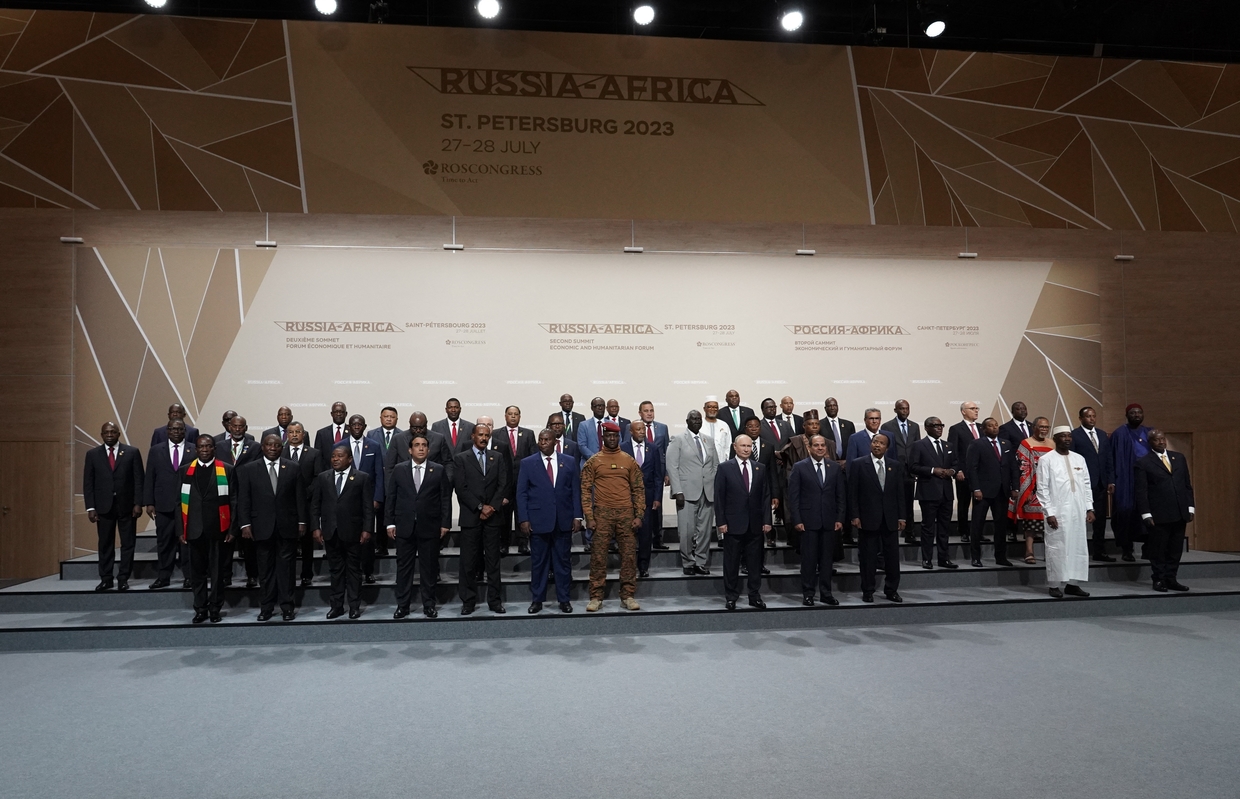
BRICS expands, Russia welcomes African voices
At its 15th anniversary summit held in Johannesburg in August, BRICS made the decision to expand its membership to 11 nations. Two African countries, Egypt and Ethiopia, are among those to join from next year, and will engage in some of the world’s most important conversations. Arguably, South Africa’s BRICS presidency has taken the group into a new era.
With Egypt and Ethiopia joining the ranks, Africa’s representation in the bloc is hard to dispute. There was much enthusiasm around the expansion, both in Russia and in the newly admitted nations. Drawing on this high point in diplomacy, the new members will surely bring benefits to the table.
Russia’s BRICS presidency in 2024 is likely to boost the group’s agency in setting new rules, standards, and structures for the changing world. As the most dynamic part of the global majority, Africa will benefit from this development, both as a contributor and the playground for new initiatives.
Importantly, this is coupled with a common drive towards the de-dollarization of the economy and trade, with more countries now ready to use national currencies in international settlements. If Afreximbank (the African Export-Import Bank) succeeds in bringing up to 20 countries from the continent to the Pan-African Payments and Settlements System by the end of the year, this will be an important shift to the long-standing rules of the game, signaling greater financial sovereignty. Here, Russia wants to be a peer of African nations, looking for solutions at the national level and beyond.
In early December, Afreximbank met a delegation of the Eurasian Economic Commission in Cairo, where they discussed the prospects for eliminating the remaining barriers to trade, a broader use of national currencies, and technology transfer. While there is still much to implement, this year brought positive shifts to the Russia–Africa trade landscape. The share of the dollar and the euro notably fell below 8.5%, compared to 98.2% just two years ago.
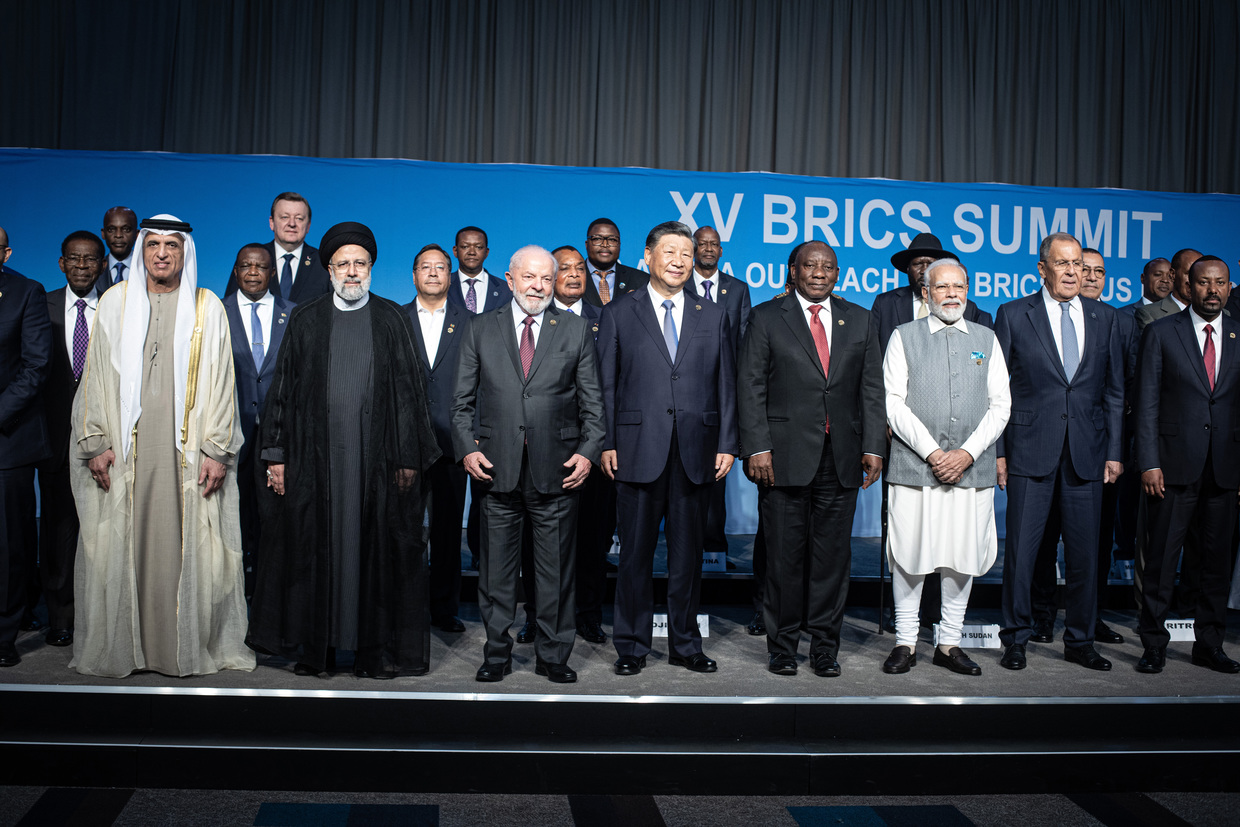
Enhanced defense partnerships receive new impetus
Russian Deputy Defense Minister Yunus-bek Yevkurov’s trips to Africa also marked a development in Moscow’s military cooperation with its partners on the continent.
In the space of a few months, he visited Mali, Burkina Faso, Niger, the Central African Republic, and Libya. This pronounced his rise as a kingpin of the ostensible ‘Africa Corps’ affiliated with the Defense Ministry.
Even if it is too early to tell whether such plans reflect the more solid nature of Moscow’s ties with Africa, Yevkurov has essentially emerged as a trusted strategic partner for the region. The new level of partnership is best reflected through intensified contacts and new agreements, which signals a cautious and pragmatic optimism. For the West, it was rather a harbinger of unwanted change that they tried to arrest. Indeed, just days after Yevkurov’s visit to Libya, AFRICOM’s US General Michael Langley was sent to Tripoli for renewed negotiations, while German Defense Minister Boris Pistorius announced a policy shift for resumed cooperation with post-coup Niger (something for which the US was just as ready).
However, today’s security is an interplay of resistance to threats, whether internal or external, and visible social outcomes such as poverty reduction, job creation, hunger relief, and more. If these are also taken into consideration as part of the new strategy, then Russia declares a more serious commitment to its partnerships.
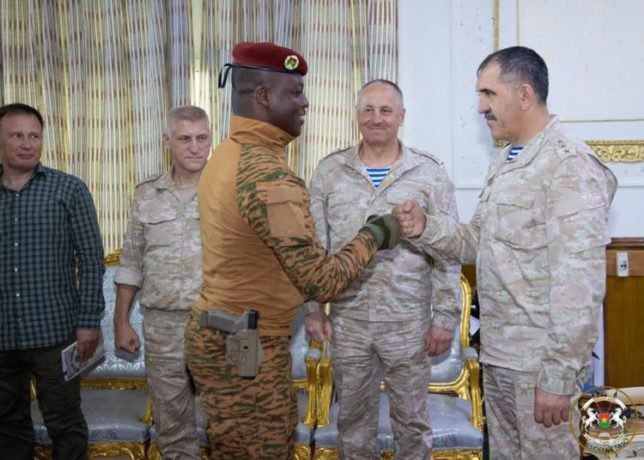
Top diplomats meet more often, and Russia expands its diplomatic footprint
Russian Foreign Minister Sergey Lavrov has been a frequent guest in African capitals throughout 2023. He has discussed the prospects for more food security, more trade, and more exchanges in South Africa, Angola, Eswatini, Eritrea, Mali, Mauritania, Sudan, Kenya, Burundi, and Mozambique.
Each time, his mission was followed by a trail of European and US diplomats hoping to frustrate agreements reached and win African governments over to the cause of sanctions against Russia and military support for Ukraine. The pressures put on Africa – bilaterally and multilaterally – are, in fact, hard to imagine. It’s enough to remember that the US was considering the expulsion of South African from the AGOA program, citing Pretoria’s independent position, and actually expelled the Central African Republic, Gabon, Niger, and Uganda. Even so, most African nations remained neutral, instead preferring a balanced and constructive approach. Many branded this as a win for Russia. More likely, though, it was a win for African agency and common sense.
In 2023, Russia also committed to re-establishing its embassies in Burkina Faso and Equatorial Guinea, and cemented its economic footprint in the region through trade missions in Ethiopia and Nigeria, expanding its reach to partners on the continent.
The need for a wider diplomatic presence was long overdue: what was abandoned in the 1990s is now returning. Even though the embassies are yet to welcome the first Russian envoys, Moscow has already made headway in ties with Ouagadougou and Malabo. This comes at a time when Burkina Faso is seeking to reclaim international recognition during a transition period, while Equatorial Guinea is poised to move its capital from the island port of Malabo to the City of Peace (Ciudad de la Paz), located in the middle of tropical rainforest.
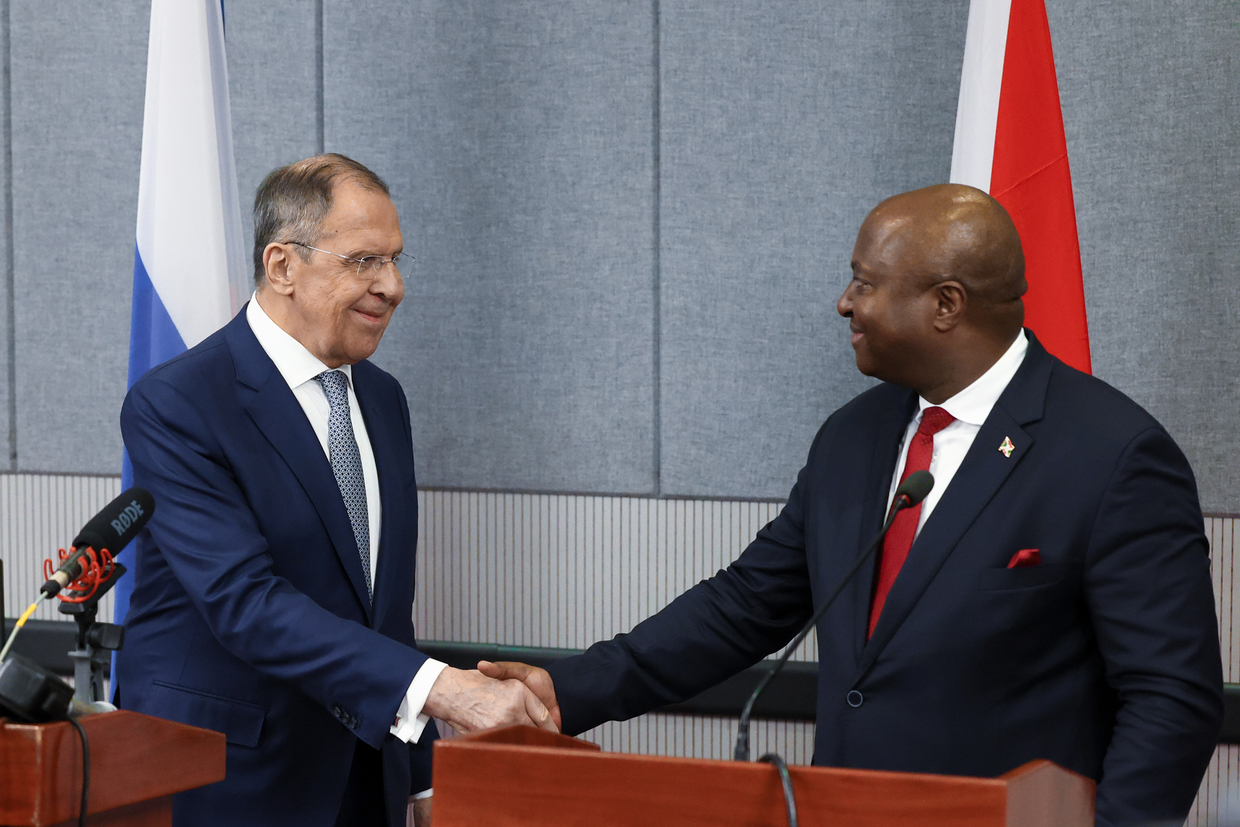
Russia launches post-graduate training for Africans, reaching the highest level in educational interaction
In late December, Moscow hosted the inaugural e-Gov Knowledge Sharing Week. The program was designed by the Center for African Studies of the Higher School of Economics and supported by Innopraktika, a non-state development institute, and the Russian government. In all probability, it is Russia’s first-ever educational program for African senior civil servants. The innovative format of ‘knowledge sharing’ adopted instead of training was well received as it implies a mutually beneficial exchange, in contrast to imposing agendas, rules, and values through unilateral dictation.
Leaders of digital governance from as many as 23 countries gathered to discuss their experience and outlook on digitalization with Russian experts. The discussion was fueled by the E-Governance in Africa 2024 book and hub, jointly developed by Russian and African experts. The project will hopefully be a lasting partnership: activities are planned for as far ahead as 2026.
This year has also seen a true breakthrough in bringing more African students to Russia. As of early 2023, about 27,000 students from Africa chose Russian universities for their studies. This drastically outperforms the numbers of the late Soviet era, when only 15,000 students came to study in 1991/92.
In July 2023, in a bid to build a community of universities that train specialists for the natural resources sector, nine African nations (Ghana, Egypt, Zimbabwe, Angola, Mali, Namibia, Zambia, Nigeria, and South Africa) signed an agreement with St. Petersburg Mining University, the oldest technical university in the country. As a result, the Russian-African consortium of universities “Nedra” (“Suboil of Africa”) was established in December, comprising more than 30 universities from across the continent.
Other efforts include training for some 20 African countries along military lines, part of the concluded bilateral Defense Agreements.
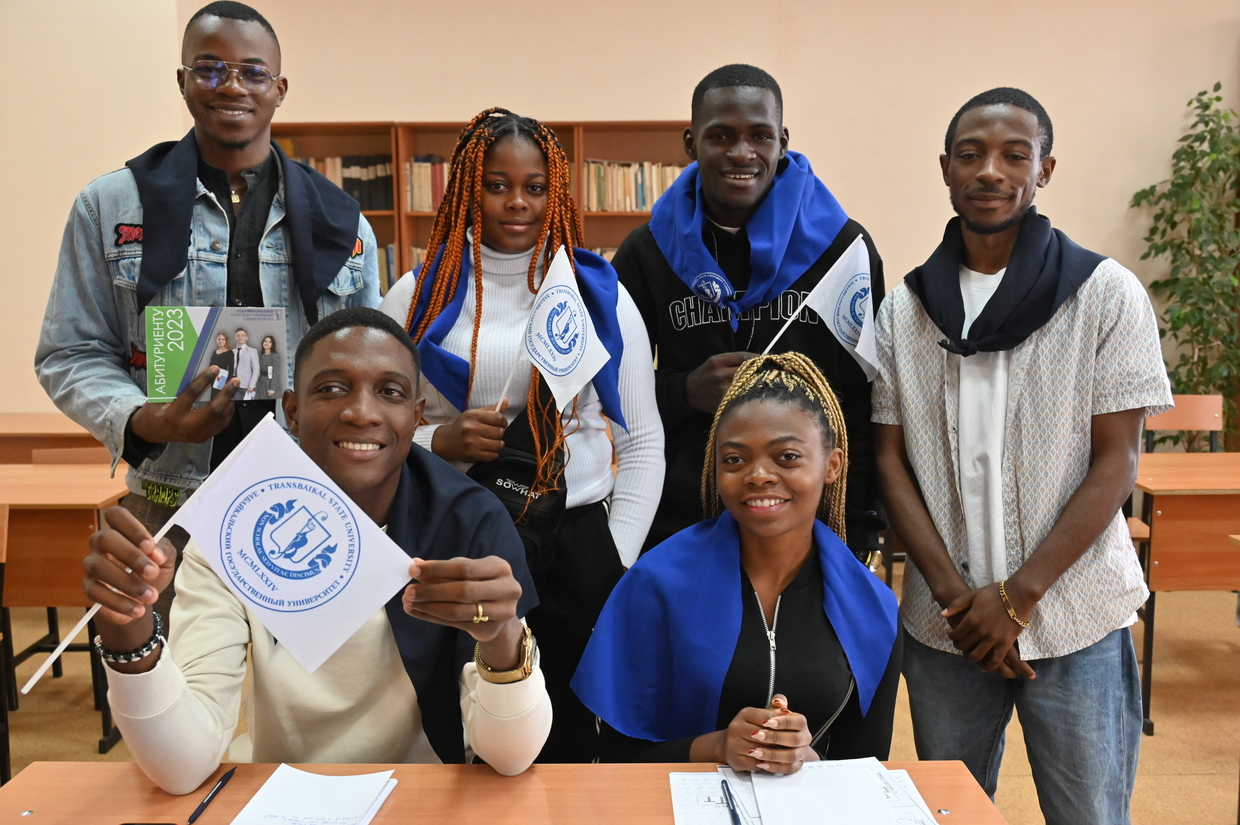
Russian language increases its popularity
In 2023, the Russian Ministry of Education has opened new Russian-language education centers in African countries, working jointly with more than ten Russian pedagogical universities. Centers and classes are currently operating in Cameroon, Algeria, Tunisia, Egypt, Uganda, Mali, Zambia, Namibia, Nigeria, DRC, and Cote d’Ivoire.
Russian Houses launched by Rossotrudnichestvo to facilitate ties with Tunisia, Morocco, Egypt, Ethiopia, Tanzania, Zambia, South Africa, the Republic of the Congo, and Sierra Leone have accompanied the country’s diplomatic efforts with a broad spectrum of cultural and educational activities throughout the year.
The popularity of the Russian language and preparatory courses is directly tied to the scholarships provided for foreign students who want to study at Russian universities. Rossotrudnichestvo’s press service reported that last year, the average competition to receive a scholarship was about five people per place, so in the 2023-24 academic year, the number of scholarships was doubled from 2,300 to 4,700. Guinea, Angola, Mali, the Republic of the Congo, Egypt, and Nigeria are among the countries to receive the biggest financial benefits.
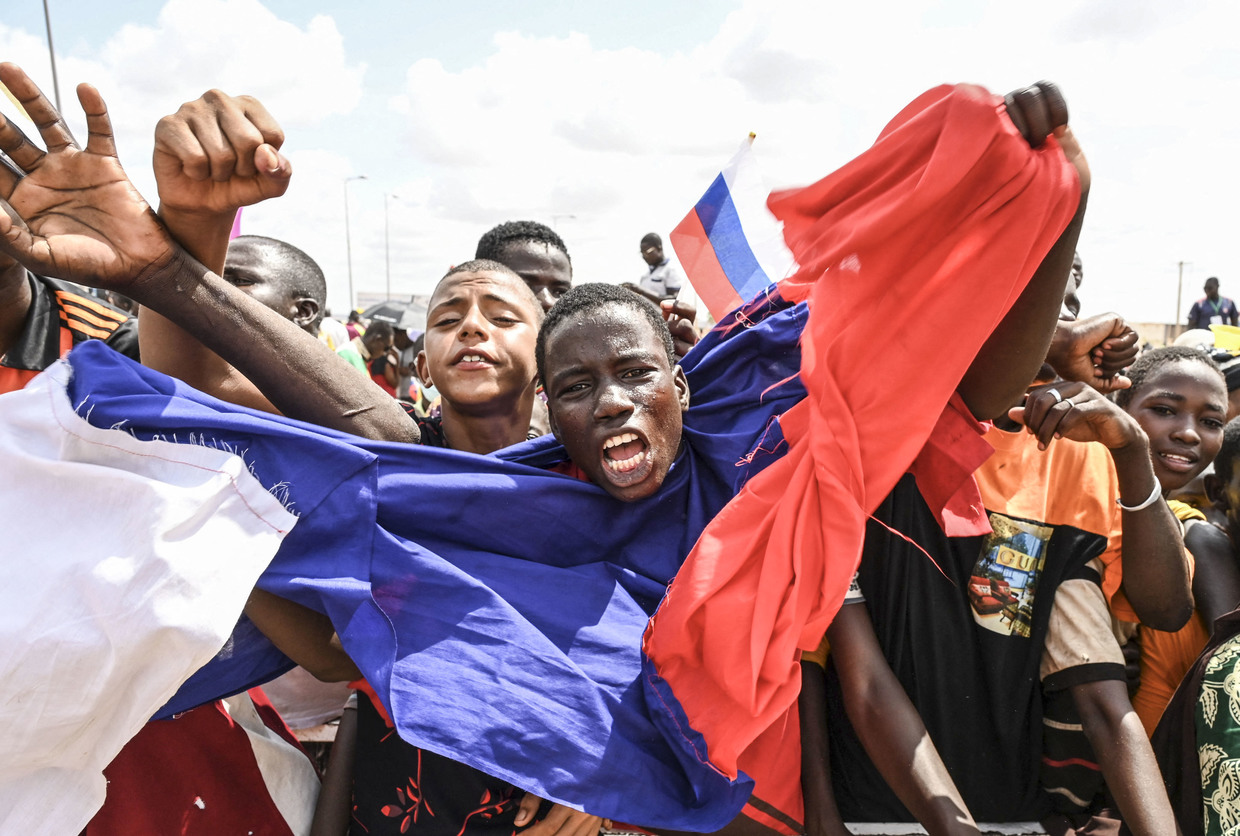
Significant growth in decision-making and scientific expertise
This has been a year in which academic interest in Africa spiked in Russia, and a year in which collaboration with Africa in some of the most important scientific fields has received renewed attention. Importantly, this was not limited to venues in Moscow or St. Petersburg. Instead, it was an outreach to African partners.
For instance, a team of Russian virologists assisted local specialists in Burkina Faso in deploying a mobile laboratory to screen cases of dengue fever when an epidemic hit the country. The assistance was not only about reporting as many cases as possible to fight the fever. It was more about local capacity-building, which was well received by the authorities. This, in turn, paved the way for experts from Russia being invited to the “Healthcare and Sovereignty” conference held in Ouagadougou, the country’s capital. More importantly, this positive experience facilitated the expansion of further engagement, with a comprehensive program to combat diseases approved by the Russian government. Lasting up to 2026, it received funding of 1.2 billion rubles (around $13 million).
For the two countries of the Sahel, Mali and Burkina Faso, Russia offered training in fundamental nuclear research, and it will help in raising broader awareness of the possibilities that nuclear power might offer to the goals of national development.
In Madagascar, an island nation adjacent to the other part of the vast continent, Russian graduates and expeditions can now build on the agreement that facilitates mutual research on the marine world, genetics, and climate change. Again, studies will be in equal partnership with the local University of Toamasina, so that they involve joint work and exchanges.
In May 2023, experts from the Center for African Studies at the HSE in Moscow released the comprehensive Africa 2023 Handbook, which sought to bridge the apparent gap in information for deliberate decision-making. The book, dispelling stereotypes, offers answers to pertinent questions that arise when assessing the risks of doing business in Africa. A practical guide to Russia’s Africa Action Plan, it has already become the handbook for every Russian decision-maker involved in Africa.
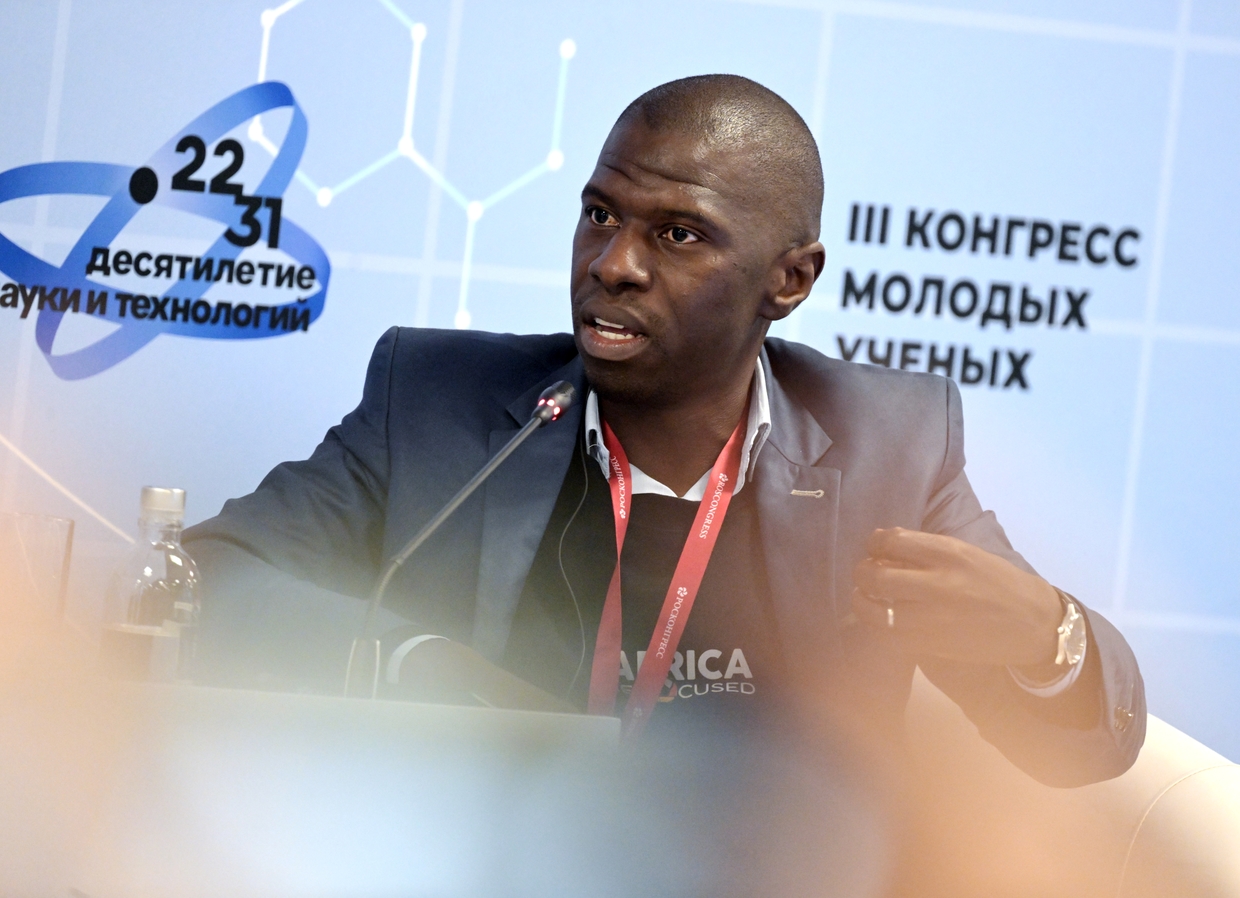
Russian grain bolsters Africa’s food security
The first two ships with Russian grain for Somalia and Burkina Faso, a humanitarian response coming at no charge, arrived in early December. The countries each received 25,000 tons of grain. Building on the success, more grain will be shipped to the Central African Republic, Zimbabwe, Mali, and Eritrea by the year’s end.
As a continent with a growing population and increasing climate pressures, Africa seems to welcome Russia’s assistance in alleviating food insecurities in the most vulnerable countries. As a result, Russia has emerged as a reliable food security provider, capable of meeting growing needs. While Russia exported 11.5 million tons of grain to Africa in 2022, exports reached the 10 million-ton mark in the first six months of 2023.
But grain is only part of the equation. Chronic hunger, faced by 20% of Africa’s population, is in essence a consequence of a lack of infrastructure, rather than poor efficiency in production and imports failing to meet demand. To turn the tide of hunger in Africa, Russia has to play longer term role, banking on capacity-building. Aid must fall on the necessary infrastructure and qualified personnel equipped with the know-how of precision farming or selective breeding, with farming machinery and steady supplies of fertilizers. Russia must be ready for this level of engagement when 2024 knocks at our door.
Russia and Africa strengthen sports ties
This year saw the comeback of the best Soviet traditions, when Russia’s football team met Cameroon and Kenya for friendly matches. This opened a new dimension for the country’s sports practice amid a tough international environment.
“Politics cannot put pressure on sport” is an important formula reaffirmed by the Association of National Olympic Committees of Africa (ANOCA), and it essentially endorses what Russia has long stood for. As the International Olympic Committee (IOC) was recently exploring options for how to bridge the yawning gap between various countries on re-admitting Russian athletes to the Olympic Games, the stances expressed by Africa’s individual countries as well as through five of the continent’s Olympic Associations were instrumental in bringing forward the year’s final resolution that allowed neutral flags for Russian athletes at the 2024 Paris Games. African voices on the issue were unanimous, and when they mirrored a similar decision by the Olympic Council of Asia after a meeting in Mauritania’s Nouakchott, this resulted in the Global Majority supporting the move.
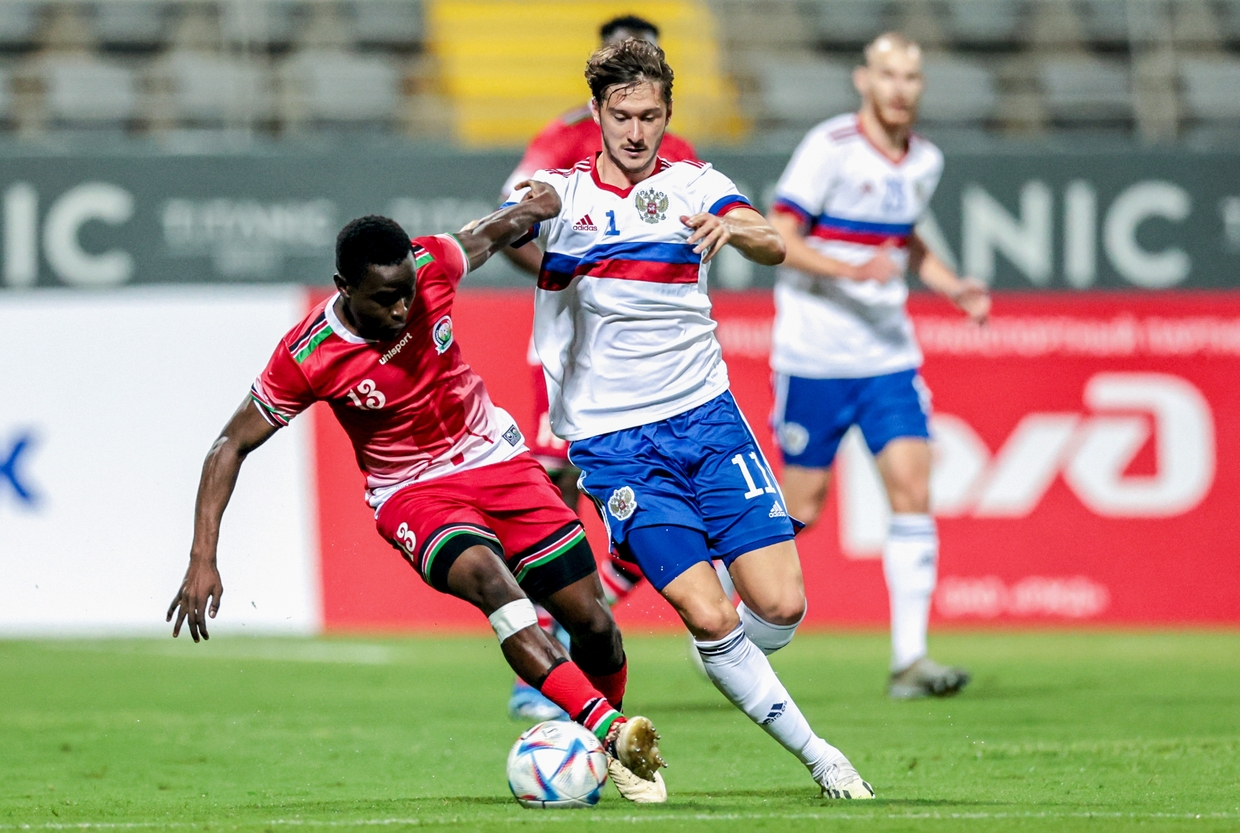
Cultural relations grow closer
For the fourth time in 2023, the choreography project led by Innopraktika School brought together talents from all around the world. This time, under the banner of ‘Global Values’, the Boris Eifman Dance Academy welcomed, among others, ten dancers from six African countries, notably Senegal, Mozambique, Burkina Faso, Uganda, Rwanda and Nigeria. Performing at the Russia – Africa Summit in St. Petersburg on the stage of the famous Alexandrinsky Theater, they shared their perception of the world’s most pressing challenges.
This year was also inaugural in the sense of Days of African Culture and Cinema, which were held for the first time and attracted much interest in Africa among Russians.









